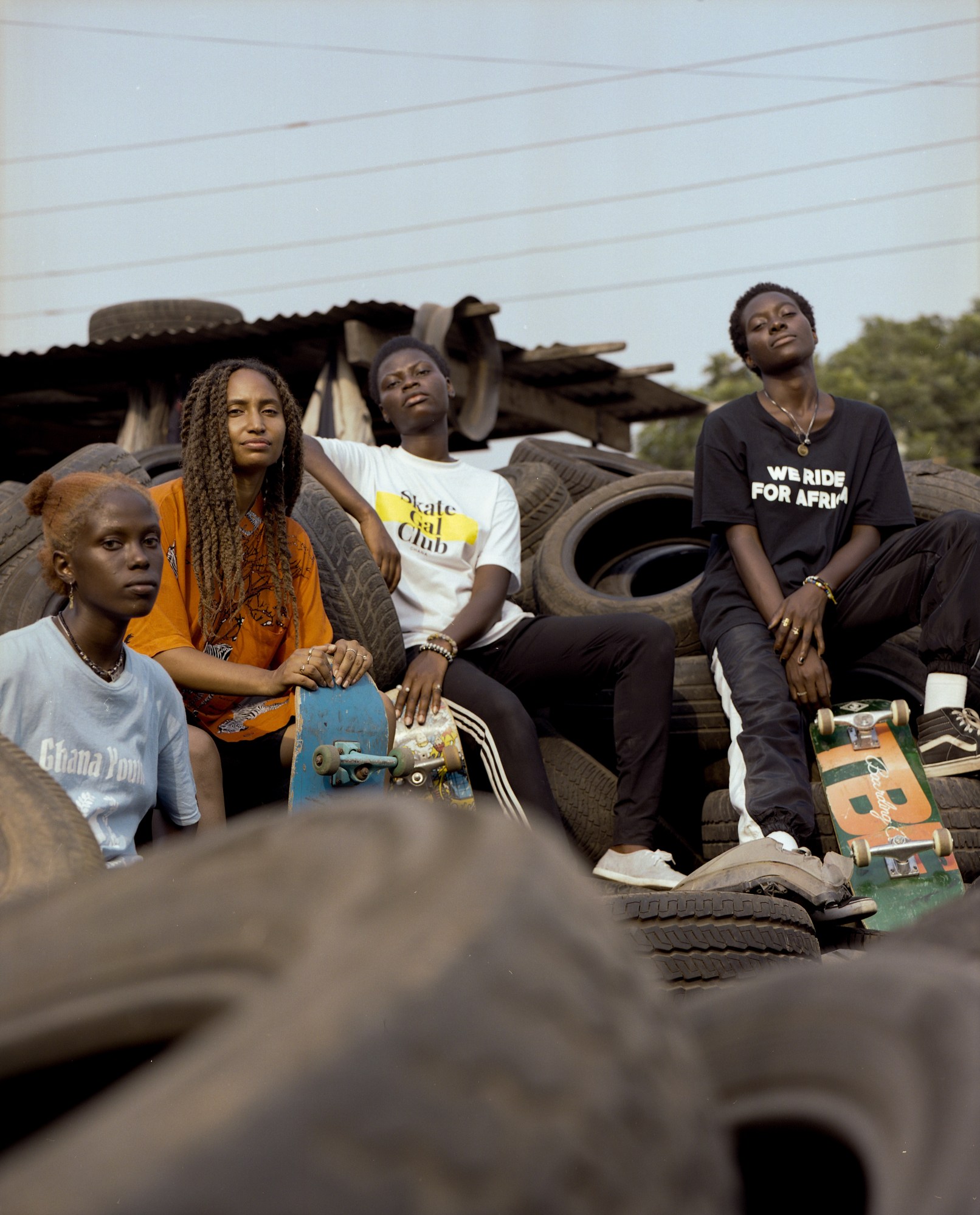Half-pipes, smooth roads, safe skate spots — these are some of the elements thought to be necessary for skate culture to flourish. So what if there’s none? Take Ghana, for example, a country where skating is gaining more and more traction but the skate infrastructure remains more or less non-existent. It’s a place where the sport is still largely considered antisocial, and skaters a nuisance to society. Consequently, skaters have frequent altercations with the police.
Amidst this difficult environment, a young collective is setting out to bring change: the Skate Gal Club. By girls, for girls, the club is the baby sister of Surf Ghana – the country’s first ever skateboarding club. Founded last year by Sandy Alibo, who is French, and her friend Kuukua Eshun, its mission is to nurture the skills of young women skaters and create a safe and empowering space along the way. At Skate Gal Club’s very first event more than 60 girls showed up, and they’ve since taught more than 200 girls how to ride.
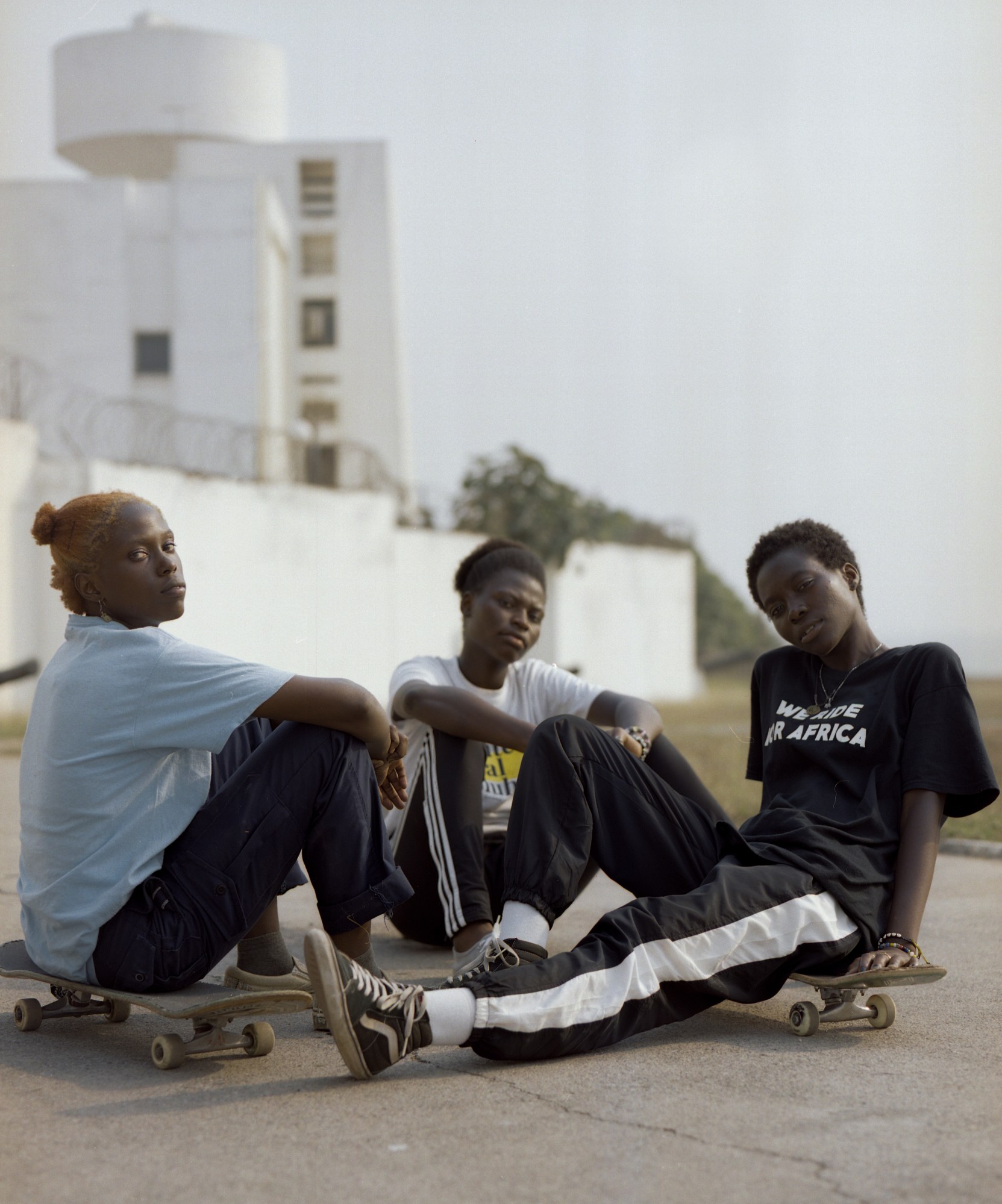
Abena Appiah, a 22-year-old London-based documentary photographer, had been increasingly spending more time in Ghana — the country where her grandparents emigrated from in the 1960s — when she came across the collective. Immediately drawn to its ethos of fearlessness, Abena asked if she could follow them around and document them during her stay. “What really spoke to me about them was that they were just doing it for themselves, they weren’t waiting for anyone’s permission,” Abena says over the phone. “The club wants to invite young women to try out new things in an environment where they feel comfortable. It’s not just about the sport but more about daring to be vulnerable and confident. Skating is more like a vehicle to connect.” What started as a small group of women skaters has now transcended into a community providing assistance to one another and serving as a haven of inspiration. One of the last events they held, on International Women’s Day, was about helping women to recognise their own beauty.
Photographing the skate crew also made Abena connect with her own Ghanian heritage. Growing up in London she’d always wanted to do something creative but, cautious of an uncertain future, instead decided to study biomedical sciences just to be safe. But while shooting documentary photography on the side, she began landing campaigns for Adidas and Highsnobiety. Since graduating, Abena has been giving photography her undivided attention.
Going to Ghana by herself was an important step in telling personal stories she’d always wanted to tell. “As a child from the Ghanaian diaspora, I’ve always felt this sense of in-betweenness. When I go back to Ghana I stand out because I didn’t grow up there, but here in London it is clear that my roots lie elsewhere.” Travelling to Ghana on her own terms and without family has opened her eyes to the meaning of that bicultural identity. “Having all these different experiences and being exposed to multiple cultures now feels like something quite empowering,” she says. Seeing how unapologetically themselves each of the girls were has inspired Abena to use her own voice too. “There is this really nice energy in Ghana which I’d describe as quiet confidence,” she finishes with. “They don’t care who’s watching, they don’t do it for the clout. But they definitely deserve more recognition.”
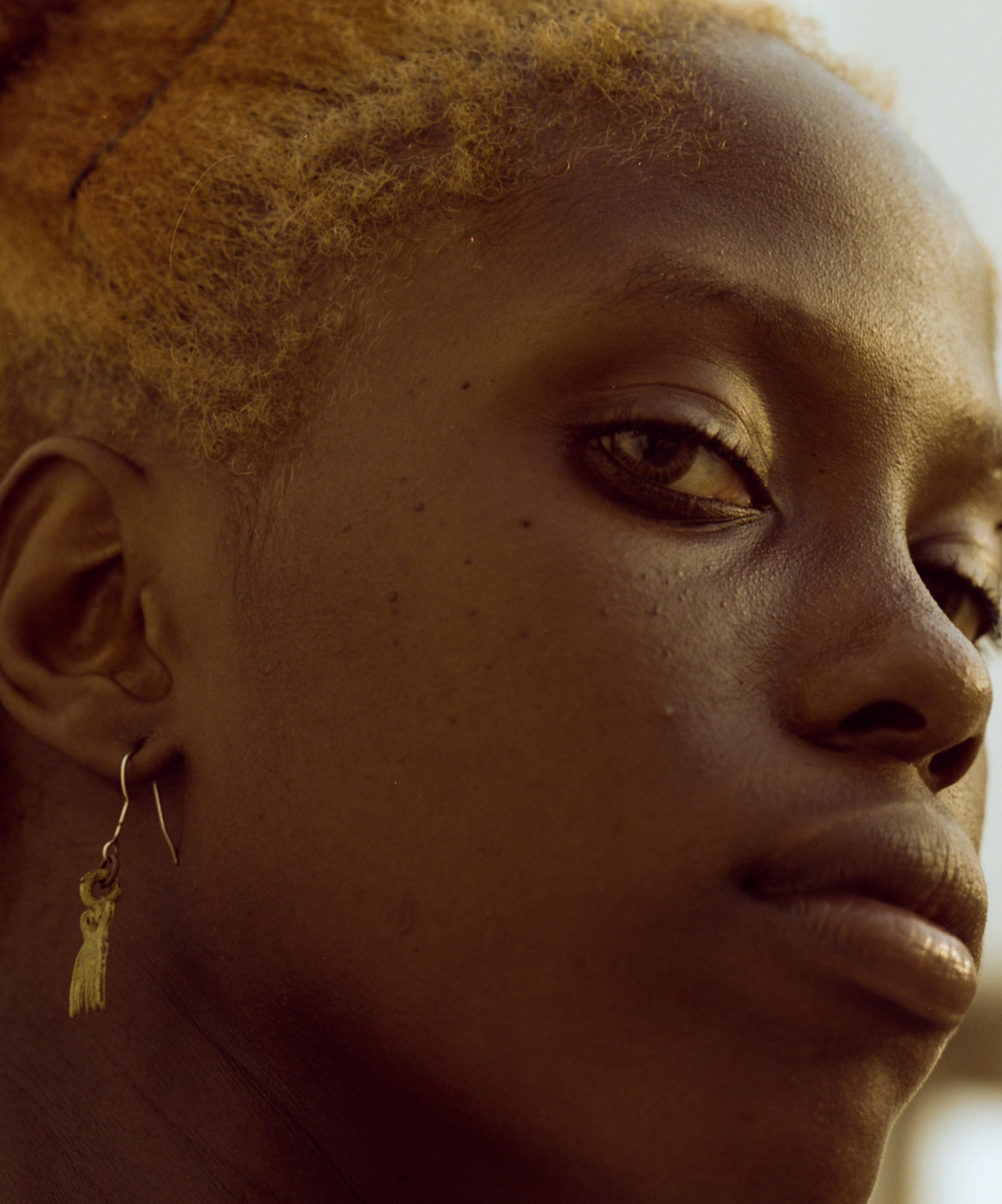
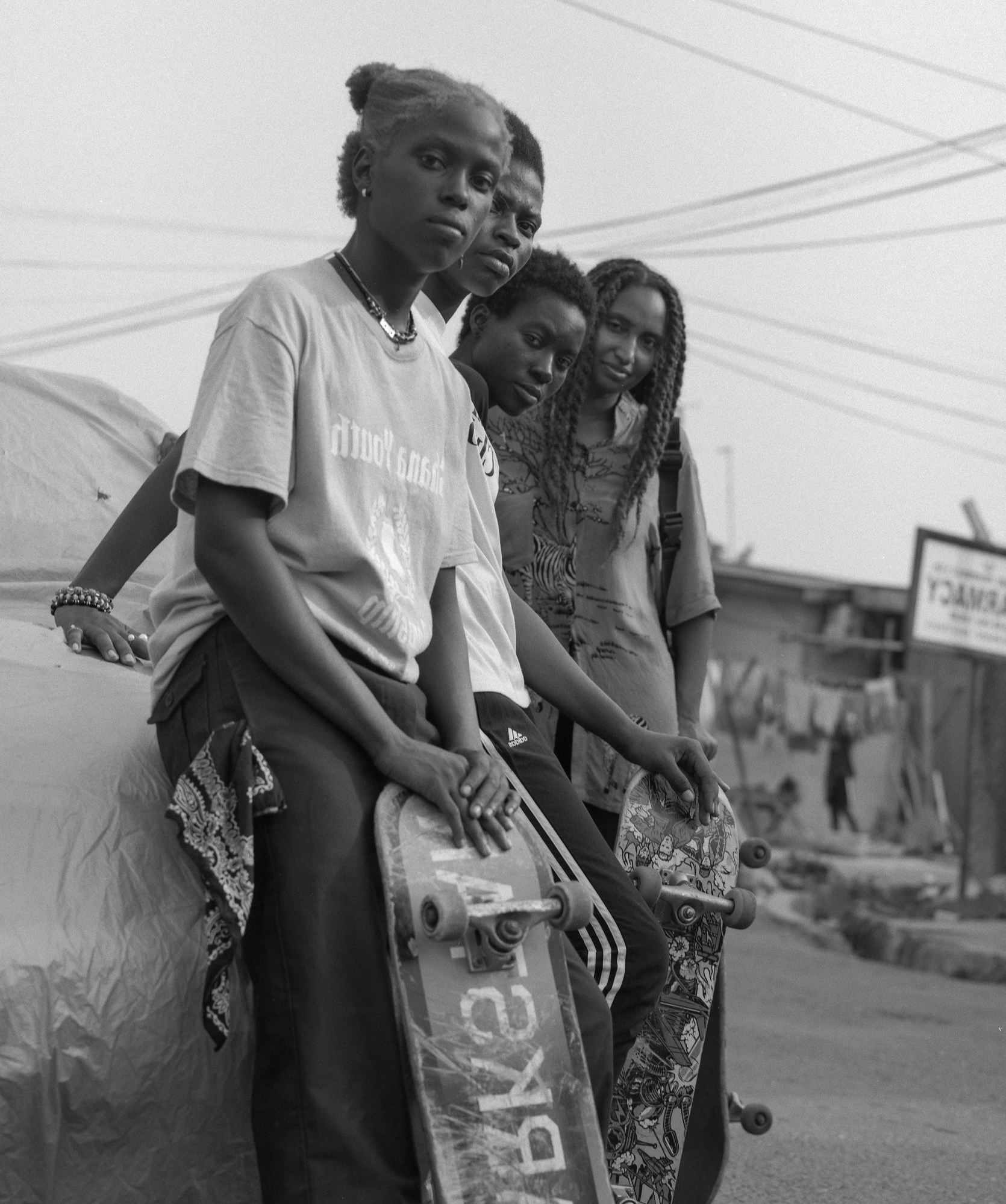
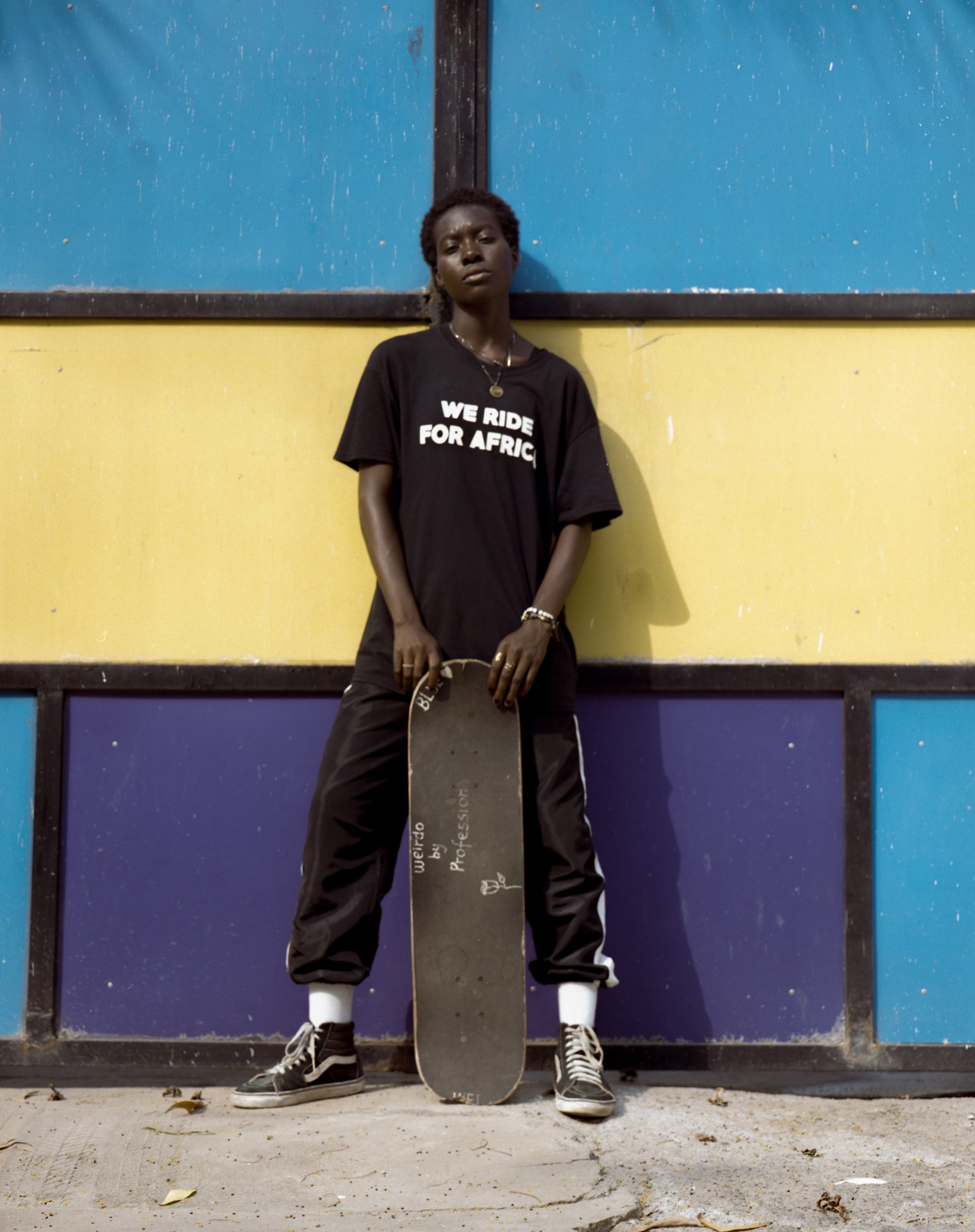
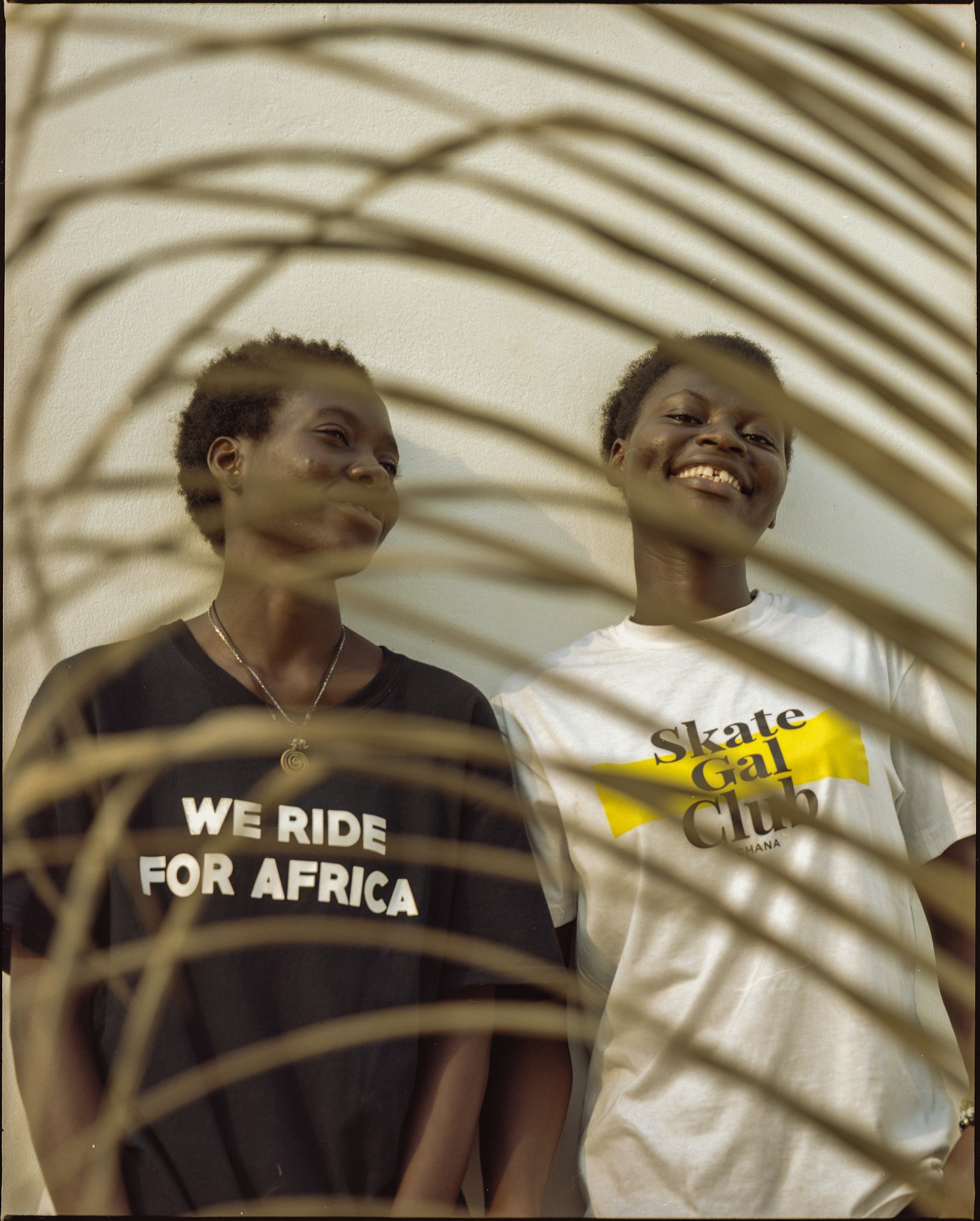
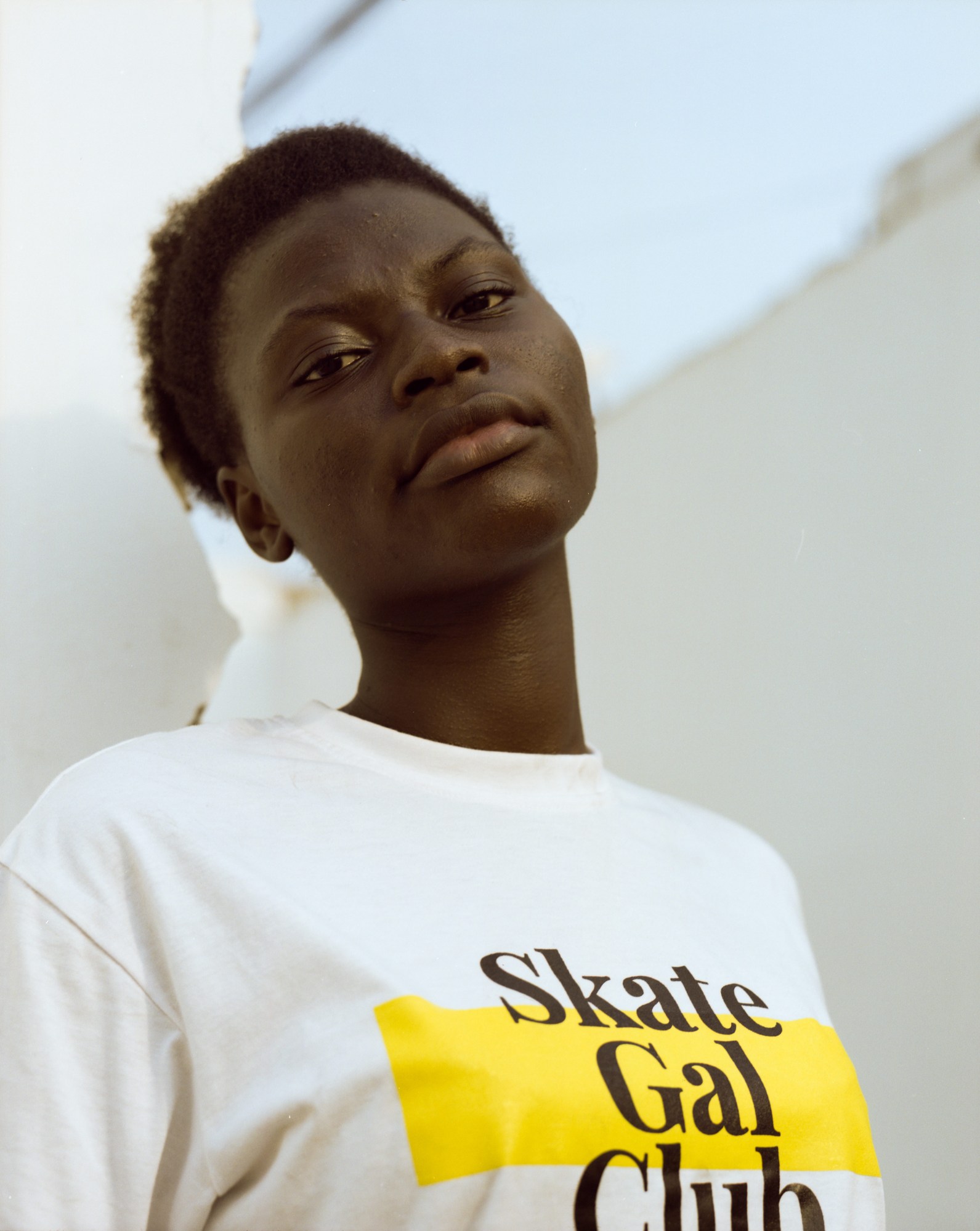
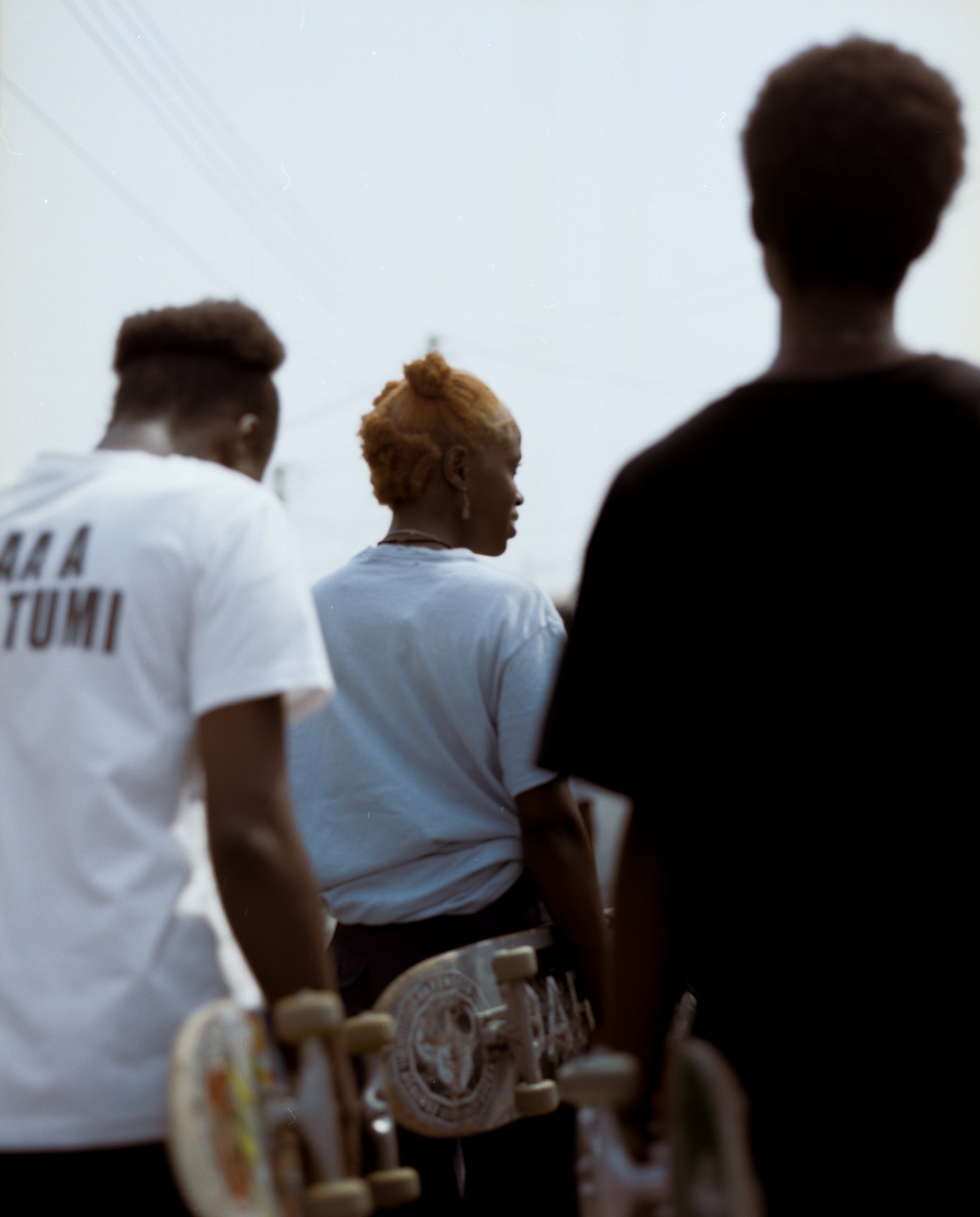
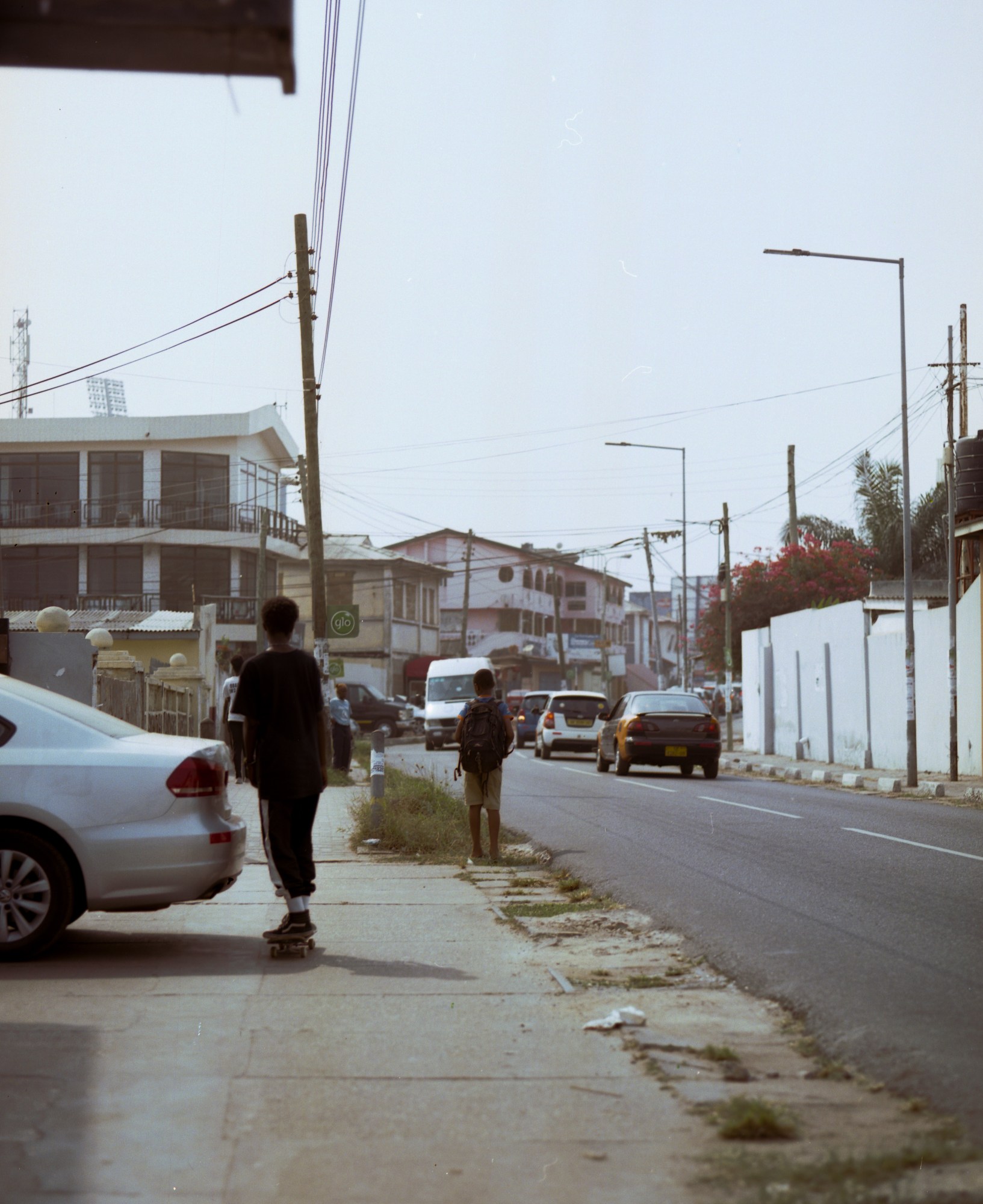
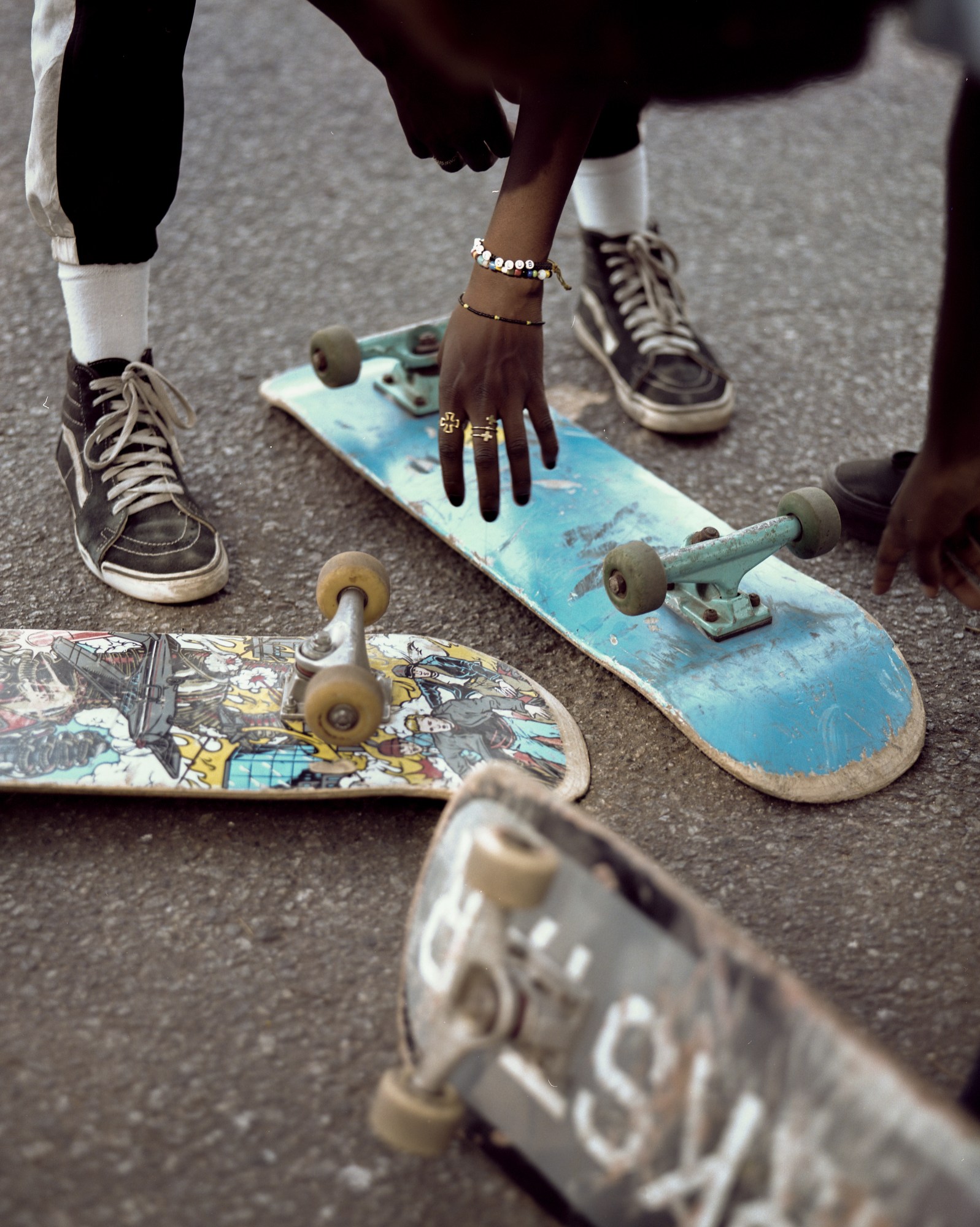
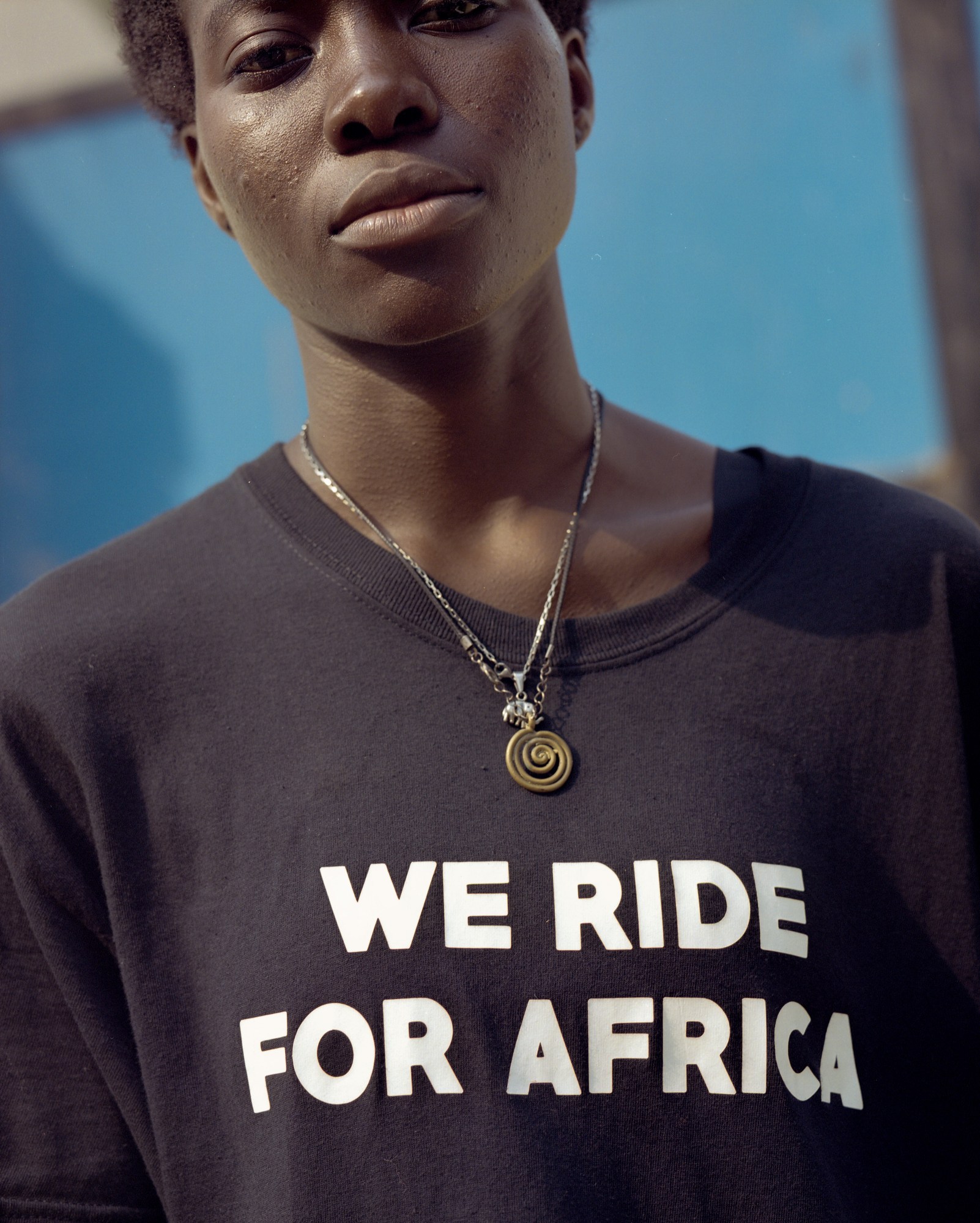
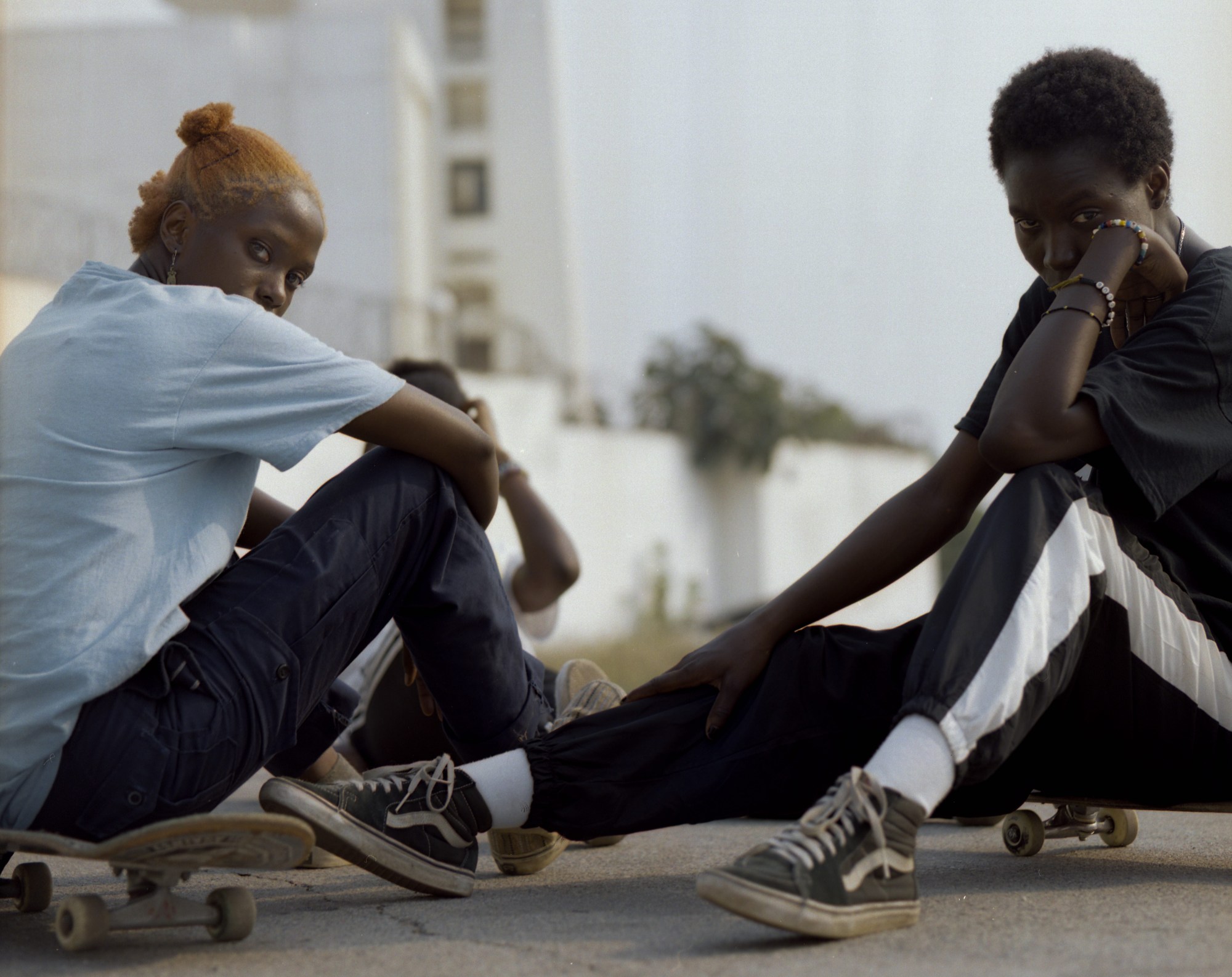
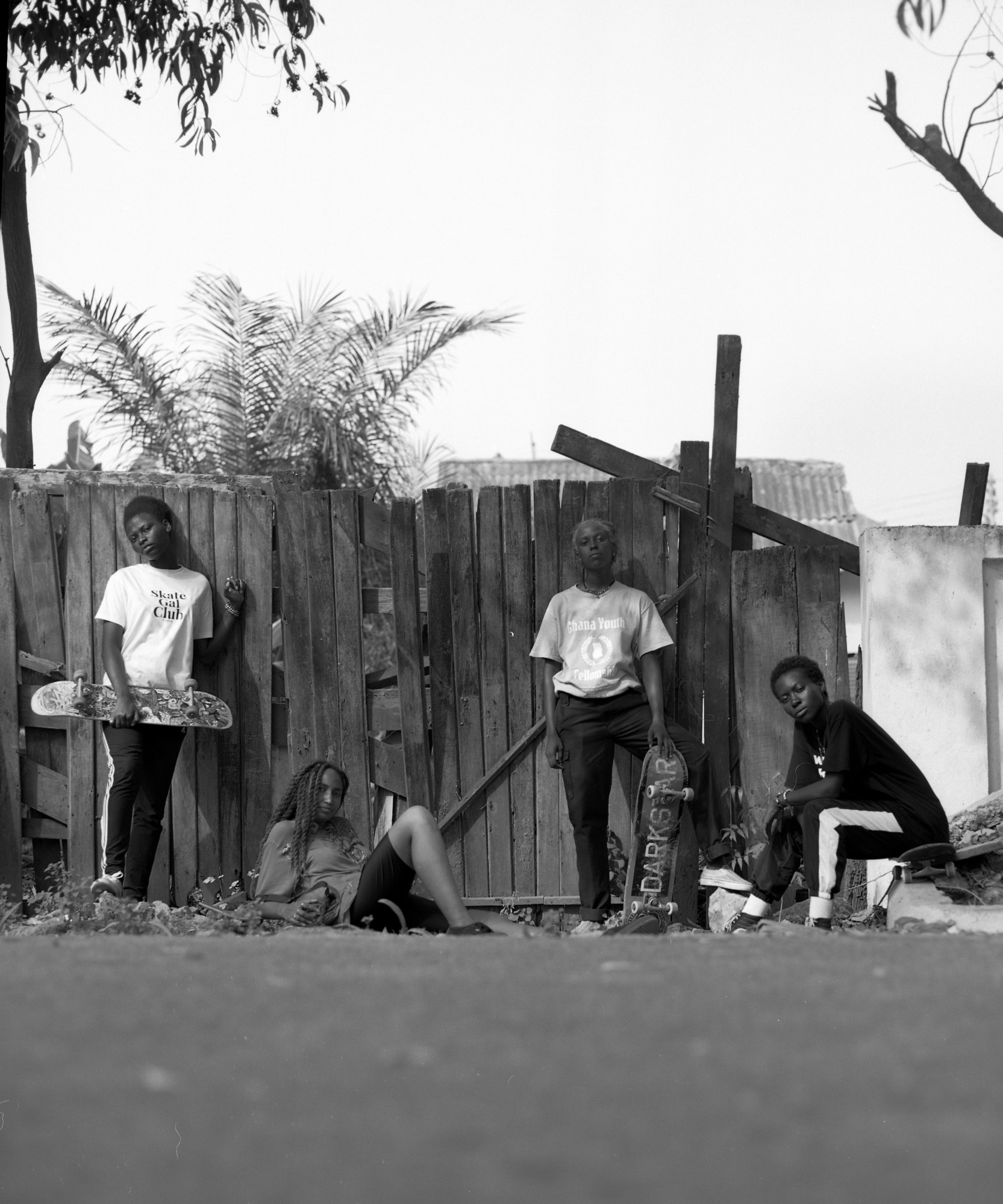
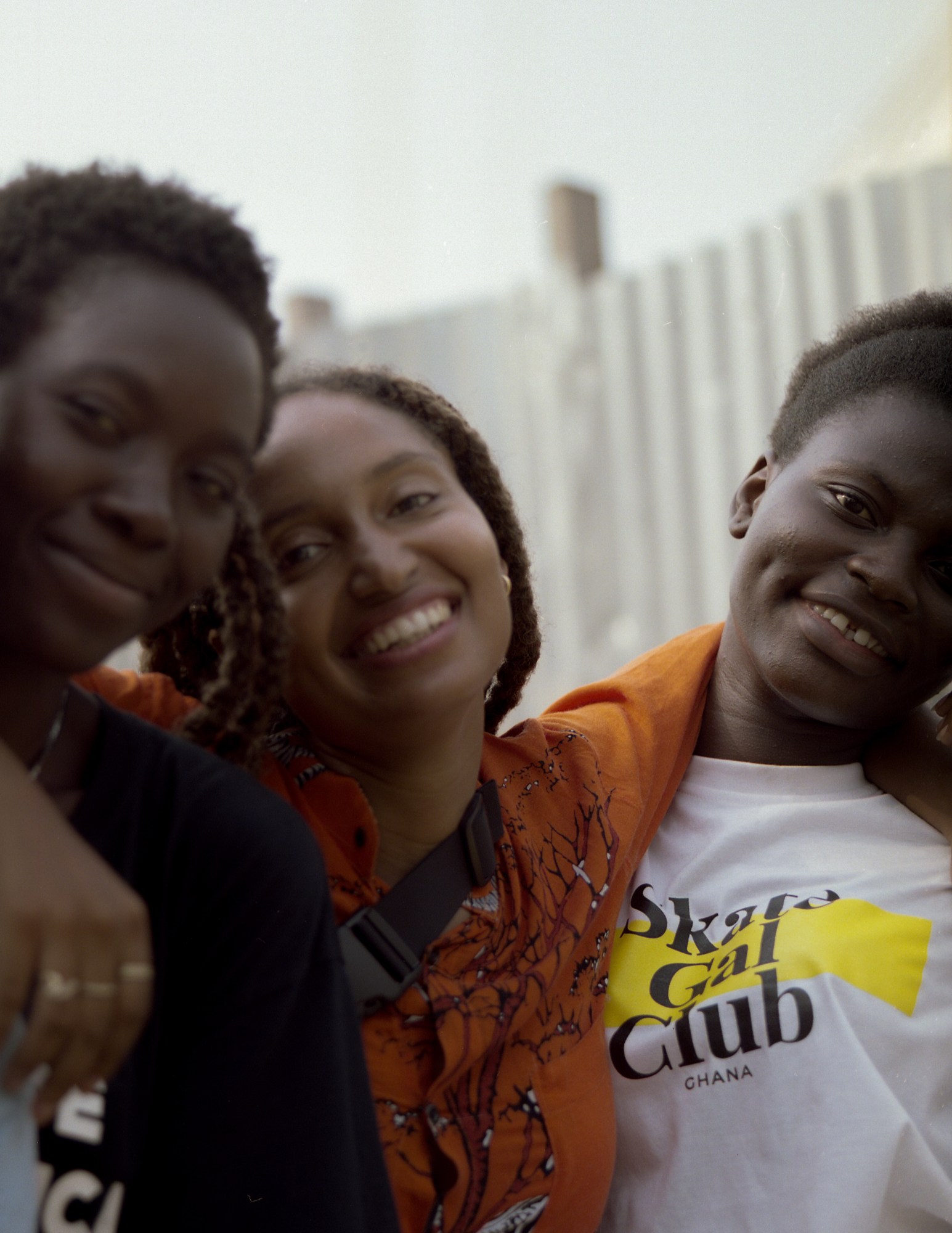
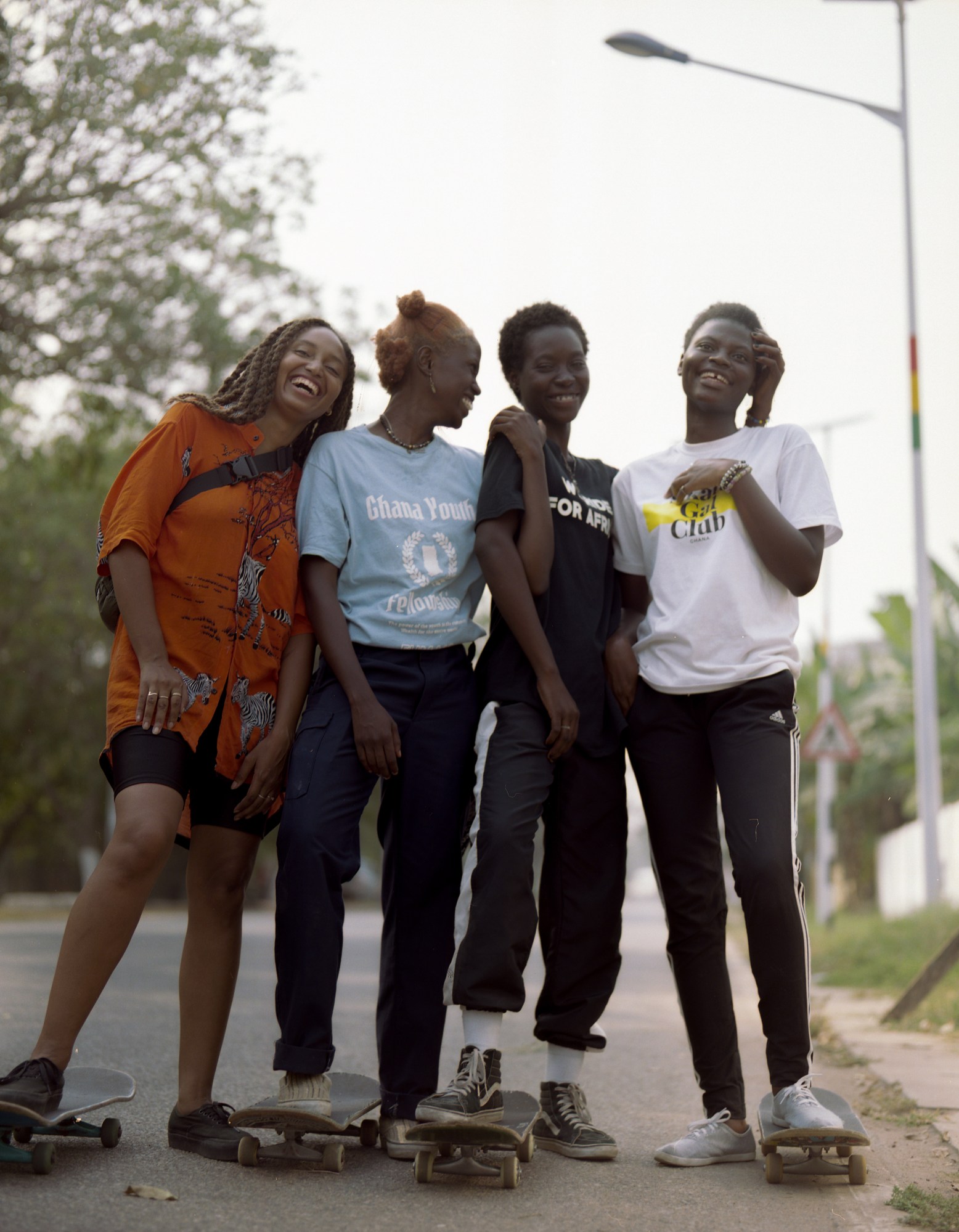
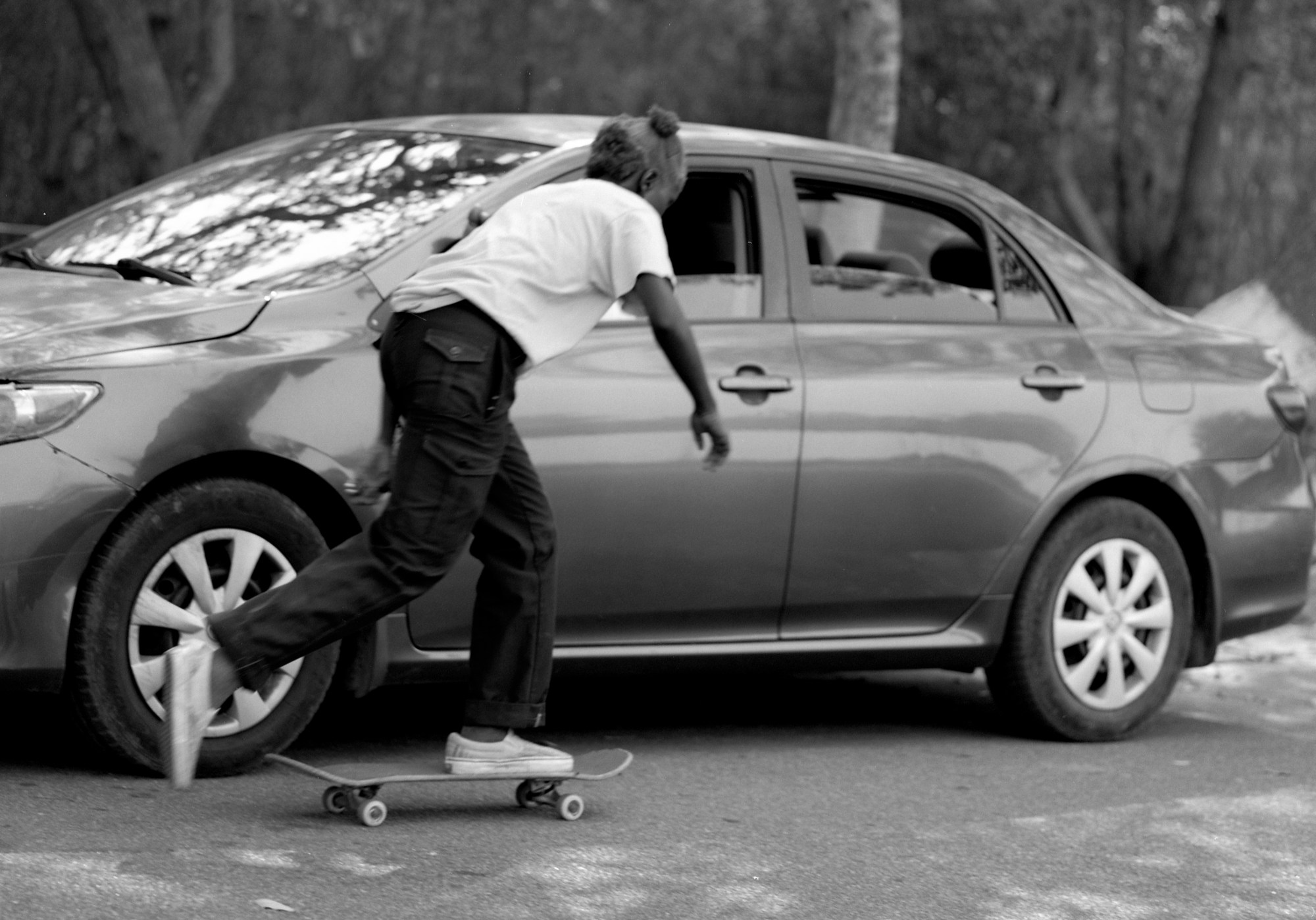
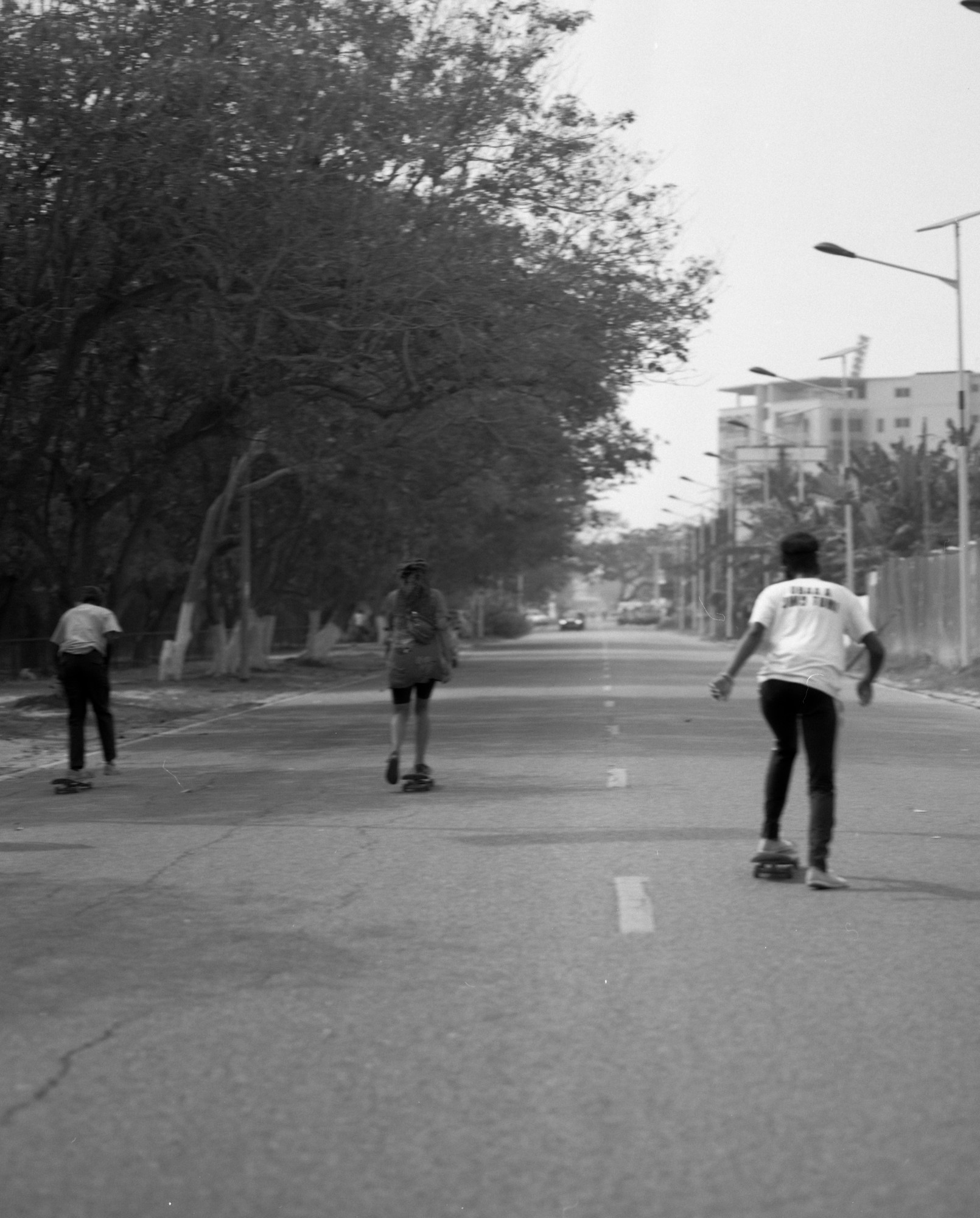
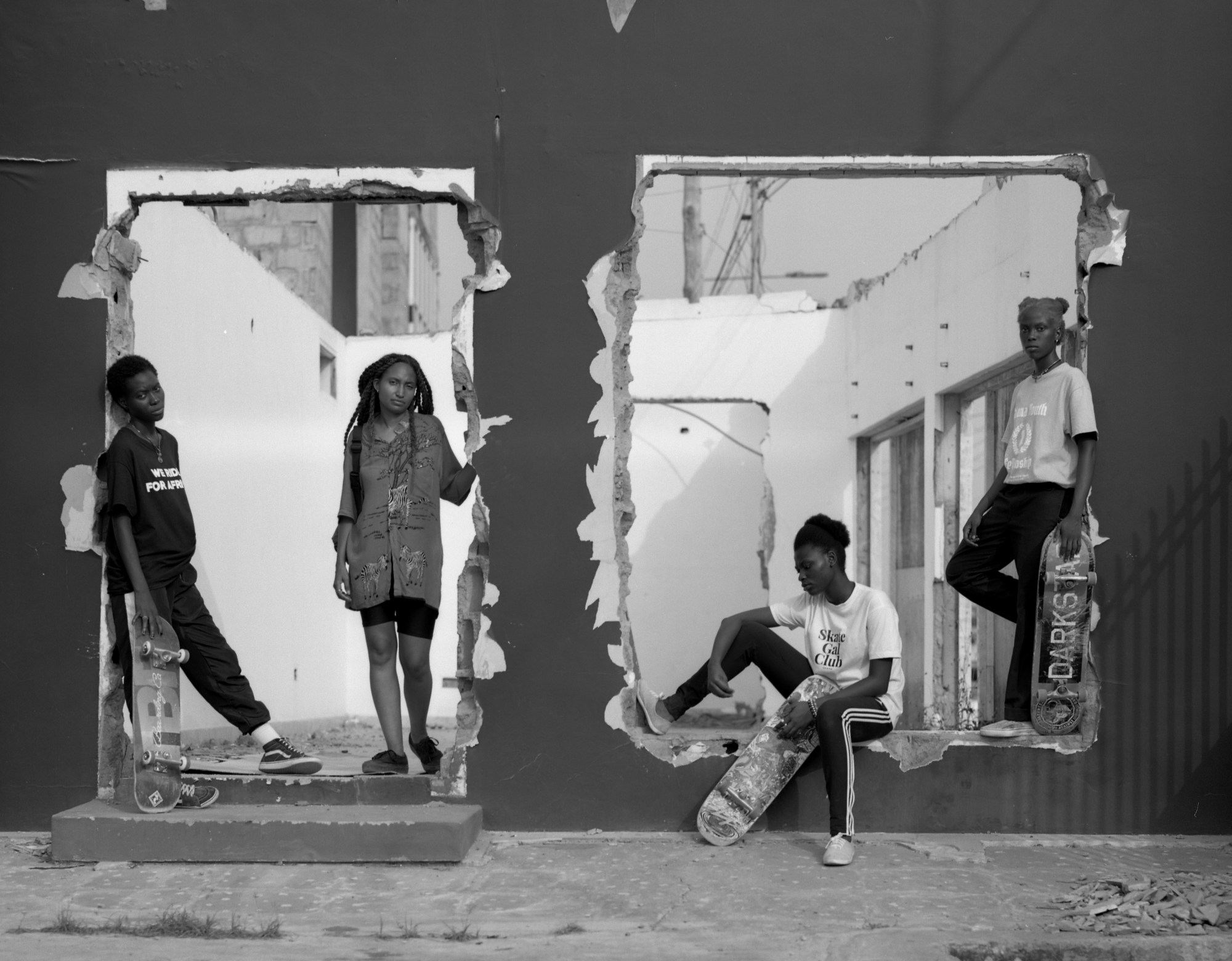
Credits
Photography Abena Appiah
Thanks to Eden, Harmonie (Blue), Efya and Sandy of the Skate Gal Club
